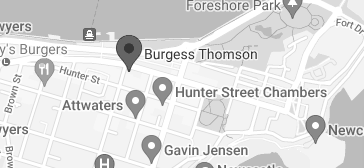The Personal Property Securities Register (PPSR) is an official government register that was established to protect security interests in personal property. The PPSR serves as a public register of security interests, essentially ensuring everyone knows that you have a registered security interest over specified personal property. If you want to know how you can protect your personal property in a business or individual setting this article is for you!
The PPSR only relates to personal property. This includes property such as:
- Cars and boats
- Crops and livestock
- Furniture
- Machinery
- Company assets
- Used goods
What is the PPSR? How does it work?
The PPSR was introduced by the Australian Government in 2012. It ensures that security over one asset is not being granted to multiple people and it can also be used to confirm that the personal property is not stolen and is debt free.
The PPSR is a register that is publicly available to search and complete registrations 24/7. It is the official government register of security interests in personal property.
The PPSR allows people in Australia to register their security interests in personal property in order to protect those interests. You can search the register to see if a security interest covers particular personal property. This is particularly useful, for example, when you are wanting to buy a second-hand car privately. It would be prudent to search the register because if there is already an existing security interest over it the car could be repossessed. The PPSR also affects many commercial transactions.
What is a security interest?
The Personal Property Securities Act 2009 (PPSA) defines a security interest as an interest in personal property provided for a transaction that, in substance, secures payment or performance of an obligation. For example, someone selling a car will have a security interest in the car sold on a retention of title basis until the buyer pays off the finance owing. Furthermore, where a lender loans money they will take an interest in the borrower’s property to secure the borrower’s payment obligations under the loan. In general, if you have a security interest over another person’s property then you may have the right to take or sell the property if they fail to meet their obligations (such as paying off their loan).
If you take security over another person’s personal property, then this must be documented in a separate agreement known as a general security agreement or a specific security agreement.
What are the benefits of the PPSR?
The PPSR is important when taking security over personal property as having a security agreement is usually not enough. The PPSR makes the agreement enforceable by third parties and gives you priority over all unsecured creditors and any other secured creditors who attempt to register a security interest after you. It also means that you will be more likely to be paid in full compared to being paid a few cents or nothing at all. Some of the key benefits of the PPSR include:
- Protecting your business against preferential payment claims;
- Effectively enforce the Retention of Title clause;
- Entitlement over goods that have been used or sold; and
- Protection against losses and bad debt due to customer insolvency.
The PPSR in a commercial setting
If your business conducts any of the following, understanding the PPSR will be a valuable tool for your business:
- Sells on credit terms;
- Hires, rents or leases for greater than two years;
- Buys or sells second-hand goods;
- Sells art on consignment; and
- Is in the agriculture, automotive, building, construction, farming or supply industry.
Next time your business is buying, selling, leasing, or hiring goods you may want to consider whether those goods have money owing on them and if your business can retrieve money from a client who goes broke. These incidents can be overwhelming to a business, but prudently using the PPSR can help protect your business. The PPSR can help protect your business in two common situations:
- When buying goods or personal property – a register search can ensure your business is able to make informed decisions by allowing you to check whether such goods or property have existing debt attached (which would expose you to repossession risks).
- When leasing out, hiring, or selling on retention of title terms you should register your security interest in the items to protect your interests in the event your customer goes broke. Doing so, ensures that you are the first to retrieve your goods or retrieve monies owing to you.
How do I register a security interest on the PPSR?
Generally, you must register a security interest within 20 working days after signing. To register a security interest on the PPSR you need to create an account, create a secured party group, and then you are ready to register your security interest. Your security interest can be registered by selecting “create a new registration” in the registrations tab.
Can a PPSR registration be removed?
In short, yes! To request someone to remove the registration, you must send them (via email or post) an amendment demand seeking that they discharge the registration. After 5 business days, and if the registration still has not been removed, you may ask the Registrar or Court to remove the registration. The other party then has an opportunity to indicate to the Court or Registrar why the registration is not to be removed. Subsequently, you will be notified in writing of the outcome.
If you are the party that is requested via an amendment notice to remove your registration, you essentially have two options. You may agree to remove your registration or respond and object to the removal (within 5 business days). In the latter case, you must provide as much evidence as possible indicating why it should not be removed. This may include any evidence indicating that there was a security agreement and that a debt is still owed to you.
In both of these cases, it would be prudent to seek legal advice.
How Burgess Thomson Can Assist
If you are entering into a contract and have concerns that the other party will fail to fulfil their obligations, taking security is a good way to ensure that you can recover what you are owed. It is important that you understand how the PPSR works before you move forward. The team at Burgess Thomson has substantial expertise in Business, Commercial and Property Law. With over 60 years’ combined experience, our solicitors have successfully assisted many clients from start to finish. We are known for sound advice and our ability to comprehensively answer any questions in our area with utmost diligence.
If you wish to discuss your matter with our team, please do not hesitate to call our office on (02) 4929 5602 to arrange an appointment.




